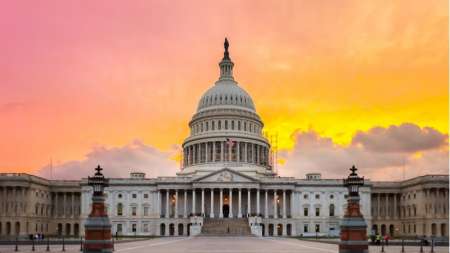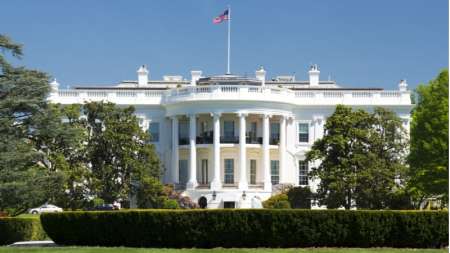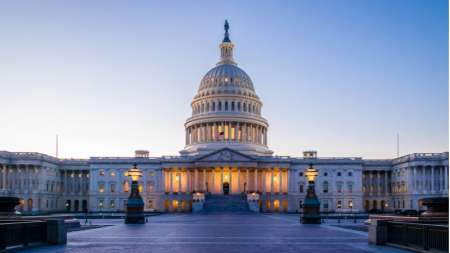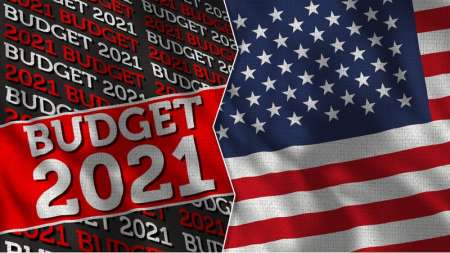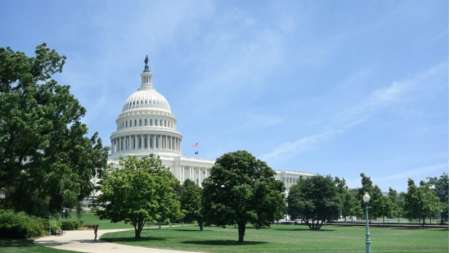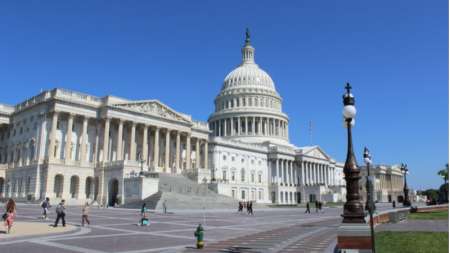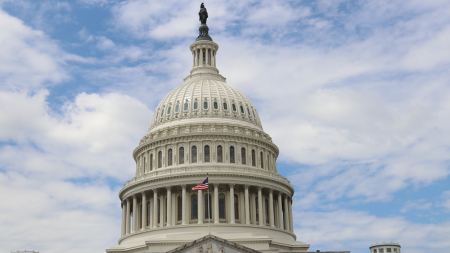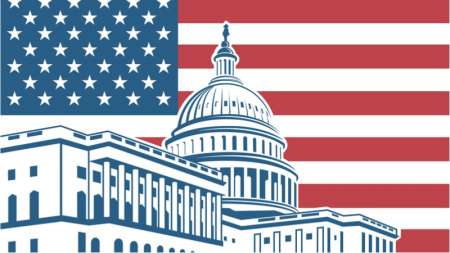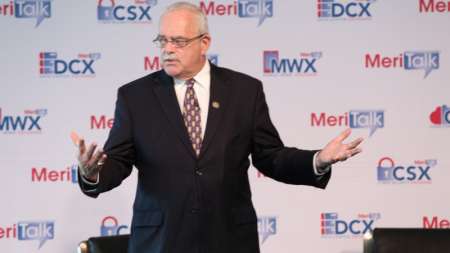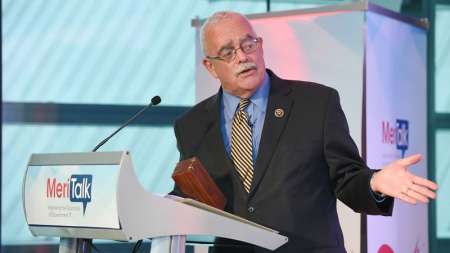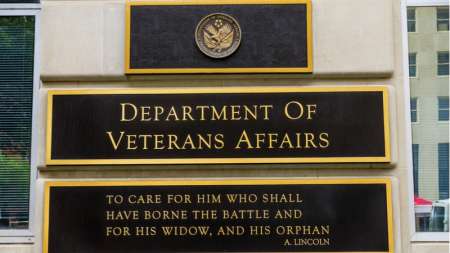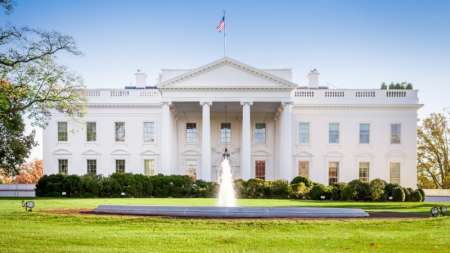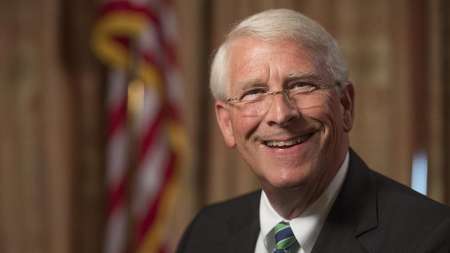The $908 billion emergency COVID relief package debuted Dec. 14 by a bipartisan group of senators proposed another big round of Paycheck Protection Program (PPP) work for the Small Business Administration (SBA), along with a $10 billion lifeline for broadband connectivity and distance learning programs. […]
The Senate unanimously passed the weeklong continuing resolution (CR) by a voice vote on Dec. 11, clearing the way to avoid a Federal government shutdown at midnight. The Senate approved the CR passed by the House of Representatives earlier in the week. The CR will now go to President Trump’s desk for final approval. […]
The Senate passed the annual National Defense Authorization Act (NDAA) for Fiscal Year 2021 on Dec. 11 with a veto-proof 84-13 vote. This follows the House passing the bill earlier this week, also with a veto-proof majority. The bill now goes to President Trump’s desk, who has repeatedly Tweeted that he plans to use his veto power. […]
New legislation being prepared by House leaders will aim to track the promulgation of any “midnight” regulations by the outgoing Trump administration with an eye to amending or eliminating any eleventh-hour rules that are not based on “evidence and research.” […]
During the last weeks of the 116th Congress, H.R. 1250, a non-binding resolution to pursue a national artificial intelligence (AI) strategy, has passed the House. […]
The House of Representatives late today approved a continuing budget resolution (CR) that funds Federal government operations through Dec. 18. The CR still needs Senate approval to avoid a Federal government shutdown when existing funding authorization expires on Dec. 11. […]
On Dec. 3, President Trump signed into law a bipartisan bill that would codify the Information Technology Modernization Centers of Excellence (CoE) Program, housed under the General Services Administration (GSA). […]
The House of Representatives will vote Dec. 9 on a one-week extension of the continuing budget resolution (CR) which is set to run out on Dec. 11 – avoiding an imminent Federal government shutdown for a lack of funding. […]
The House of Representatives has passed the National Defense Authorization Act (NDAA) for FY 2021 today. The bill passed with a veto-proof majority, undercutting President Trump threats on Twitter to veto the ‘must-pass’ legislation. […]
Following the 11th hour exclusion of his bill to codify the Federal Risk Assessment and Management Program (FedRAMP) into law from must-pass defense legislation, Rep. Gerry Connolly, D-Va., said he’s interested in giving the measure another push after the 117th Congress begins in January 2021. […]
Sen. Brian Schatz, D-Hawaii, is leading a bipartisan group of 49 members of Congress urging Senate and House leadership to include in end-of-year legislation language to make permanent Medicare telehealth expansions that were enacted earlier this year. […]
Cybersecurity leaders in Washington are rejoicing as the proposed 2021 National Defense Authorization Act (NDAA) includes the creation of a Senate-confirmed National Cyber Director for the executive branch, among a host of other security provisions. However, while both Senate and House leadership have signed off on the bill, its future remains uncertain as President Trump has threatened via Twitter to veto the legislation. […]
A bill introduced in the Senate Nov. 18 by Sens. Catherine Cortez Masto, D-Nev., and Rob Portman, R-Ohio would charge the National Institute of Standards and Technology (NIST) with reporting to Congress on the impact of the Chinese government’s influence in setting global standards for emerging technologies. […]
The House on Nov. 17 approved by voice vote a bill that would provide $750 million of Federal funding grants to support the deployment of Open Radio Access Network (RAN) 5G wireless networks in the U.S. […]
A group of Democratic House members led by Rep. Ro Khanna, D-Calif., this week introduced the 21st Century Jobs Act which would give the Federal government a major role in research and development support for a host of emerging technologies. […]
A bipartisan group of senators and representatives have introduced the Oversight.gov Authorization Act, which would formally authorize the establishment and maintenance of the Oversight.gov website. […]
Senior House Democrats have introduced legislation to reverse President Trump’s controversial executive order that would create a new “Schedule F” classification for Federal employees in policy-making positions and make it easier to hire and fire them. […]
Rep. Gerry Connolly, D-Va., whose northern Virginia congressional district is home to a multitude of Federal government employees, is working on legislation that would aim to overturn last week’s controversial White House executive order that would create a new classification of Federal employees in policy-making positions and make it easier to hire and fire them. […]
President Trump this week signed the US SAFE WEB Extension, which reauthorizes a 2007 law that permits the Federal Trade Commission (FTC) to take action to protect U.S. consumers against cross-border fraud and deception using the internet. […]
A new bill introduced in the House this week would crimp the ability of the White House to curtail Internet access for U.S. citizens, and would put a short time limit on any service curtailment absent approval from Congress. The bipartisan bill offered by Reps. Anna Eshoo, D-Calif., and Morgan Griffith, R-Va., would limit the […]
Chairs of the Congressional Blockchain Caucus Reps. David Schweikert, R-Ariz., and Darren Soto, D-Fla., re-introduced legislation earlier this week to expand government use and the definition of blockchain, ensuring the use of the technology for electronic records and signatures. […]
New bipartisan legislation is aimed at addressing transparency issues at the Department of Veterans Affairs (VA) medical centers (VAMC). […]
On Sept. 30, the House of Representatives approved by voice vote, the Chai Suthammanont Remembrance Act, which is legislation that aims to protect Federal employees from COVID-19. […]
The House on Sept. 30 approved the Modernization Centers of Excellence Program Act, a bill introduced earlier this year by Rep. Ro Khanna, D-Calif., that would require the General Services Administration’s Technology Transformation Services group to establish a Modernization Centers of Excellence (CoE) “to facilitate the adoption of modern technology by executive agencies.” […]
The House of Representative this week voted to approve a collection of bills that aim to improve cybersecurity in the energy sector, inform the use of emerging technologies, and establish R&D plans. […]
Federal legislation to help strengthen the cybersecurity of state and local governments through a Department of Homeland Security grant program passed the House of Representatives on Sept. 30 – with impetus for the legislation coming from across the U.S. in the form of numerous ransomware and other attacks in recent years. […]
The eight members of Congress that comprised the Future of Defense Task Force signed off on the group’s bipartisan work, which was months in the making and recommended several items pertaining to artificial intelligence, cyber, and the technology workforce. […]
The Government Accountability Office said in a report that in order to fully implement the White House’s National Cyber Strategy a “clarity of leadership” is “urgently needed.” […]
MeriTalk caught up with the Center for Democracy & Technology’s Director of the Data and Privacy Project Michelle Richardson, a witness for the committee back in April, to get her take on this week’s Senate hearing, what has changed recently in the privacy world, and the prospects for a Federal privacy standard. […]
A group of Republican senators introduced a bill to create a national data privacy standard, formally bringing forth a bill that had been released as a staff draft almost a year ago. […]

